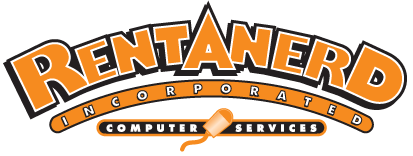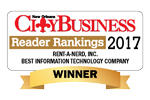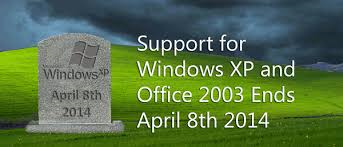
Students are back in school, looking forward to a new year, fresh uniforms, probably a new lunchbox, even some nice new school supplies. Now is also a great time to give your office that sort of fresh start and we’re here to offer you some business tips so that you can do just that.
Take a walk around your own personal work space and then venture out into your entire business’s space. As you’re looking around, make a list of those areas that are problematic and those that are working well. What are the differences between these two lists? It’s just as important to focus on what is working, since you can learn from success and apply the same concepts to your deficiencies. Below is a list of your business’s assets and some questions to ask yourself about each.
1. Staff: Your staff is your most valuable asset. Repeat that to yourself and remind yourself of this fact as often as necessary. Do you have adequate staff? Are they comfortable in their work environment? This includes a number of factors, including temperature, comfortable chairs, sufficient work spaces, enough breaks, a feeling of accomplishment and appreciation, and much more. If you are not sure, don’t be afraid to provide a suggestion box so that employees know that they can offer suggestions anonymously. Do they understand their job responsibilities? Do you have an employee handbook and job descriptions? If you don’t have written descriptions for each position, a great way to start is to ask your staff to write down what they do. Is there overlap or confusion? Do you check in with your employees to determine job satisfaction? How often? What is your turnover rate? Is it consistent with your industry? Study after study confirm that employees rank feeling appreciated higher than salary when asked about job satisfaction. This should not be a reason to pay them less, but rather, a reminder to show your appreciation.
2. Supplies: Are your supplies sufficient and convenient? Do you actually use all of these supplies? Perhaps you no longer need to keep boxes of manila folders, Sharpie markers, paperclips. Are your supplies organized? Do you have a system to track supplies and order new supplies when needed (and at the best price)? Who is responsible for this? You can even automate delivery of supplies, which can be a time-saver if there are certain supplies that you use often, such as printer ink. Depending on the size of your office, some suppliers will send someone to your office periodically to inventory supplies, freeing up your employees to do their job.
3. Server/Computers: Is your IT network efficient? Do you know whether and how your data is backed up? Is your data confidential? Do you have a plan in the event of employee turnover (to prevent unauthorized access)? Do you have a plan in case of a disaster? If not, here are some tips. Do you have a contract with a trusted and established local IT company to maintain your network (which is the efficient and less expensive option) or do you simply call a computer technician each time you have a problem? For more information about network management, follow this link. Do you require your employees to change their passwords on a routine basis? Do you know the importance of creating a two-step authentication process to preserve the confidentiality of your data? If not, check out this blog.
4. Office/Work Space: Is your work space well organized? Are you using your space to its best advantage? If not, are there improvements that can be made? Often, rather than spending money, you can make changes creatively that convert disorganized space into an office that works for you. Perhaps that involves getting rid of clutter. You may find that you no longer need many of your hard copy files. Obviously you should speak with your accountant before getting rid of financial documents, but you can probably get rid of a lot of other “stuff.” Most information can be found online, so there is no need to keep hard copies of lots of things. If you’re concerned about losing information, set up bookmarks on your web browser. There are a number of local businesses that will come in and organize your space for you, and this is often much less expensive (because of employee downtime) than trying to do it yourself.
5. Digital Presence: Do you have a corporate website? How often do you review it? Is it up-to-date? Is it clear and easy to navigate? Is it easy to find? Does it contain a blog? If so, who is responsible for generating content? There are certainly a number of “canned” blogs that can be purchased for just about every industry imaginable. But did you know that this redundant content actually hurts your online ranking? It is often better to have no blog than to use a blog-generating service if others in your industry are posting the exact same content. Do you have a social media presence? Is it linked to your website? Who generates its content? Do you have a system for checking and responding to any positive or negative comments/reviews? Rent-A-Nerd, Inc. works closely with local website designer Get Online Nola and digital media firm FSC Interactive and highly recommends both companies. If you are not certain that your website is well-designed or that your digital marketing is reaching your target audience, then you are wasting resources and missing opportunities.
Once you’ve physically gone through the process of actually looking at your business in detail, and have asked yourself these questions–and more, you are in a great position to prioritize what changes can be made in order to create that fresh start. Your office can enjoy that “new school year” feeling of optimism that is felt this time of the year!





